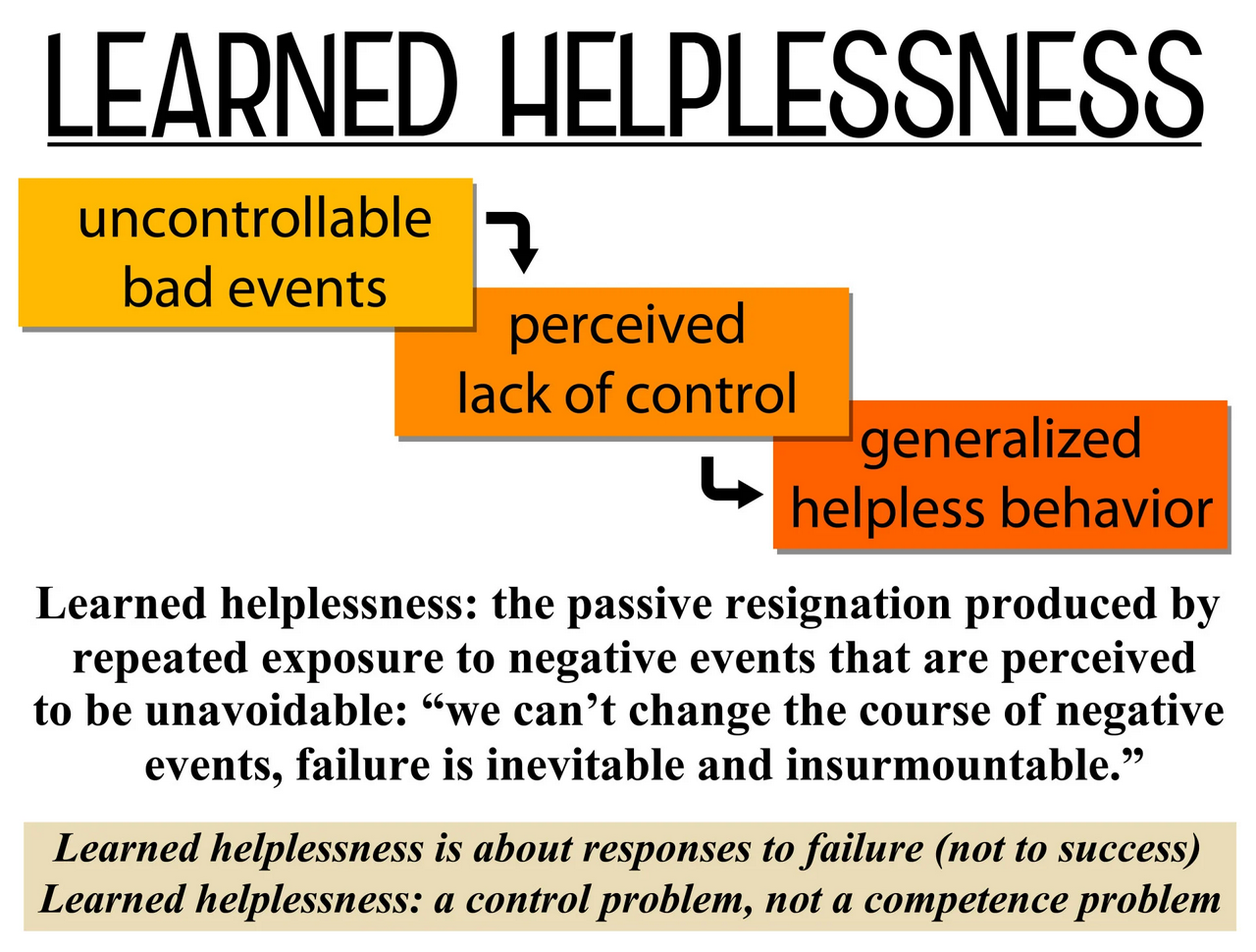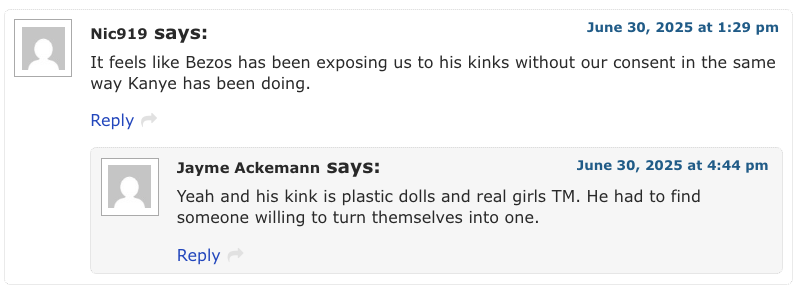zaddy

content warning: 🚨 everything 🚨
Today I was reading about the Billionaire's upcoming nuptials to the Fiancée, a former entertainment journalist. I read something about how the billionaire "briefly sent" his beloved fiancée "to space," and I started laughing at my desk. "Girl, he hates you!" I said out loud to nobody.
Now, still snickering to myself, I was texting my best friend about launching people you ostensibly love straight past the Earth's stratosphere. I would claim I couldn't imagine ever wanting to launch a loved one into space, except that I did attempt it once—on my great-aunt—using a cardboard box, a bicycle, a jumprope, a Nash skateboard, and the power of imagination. (It has not escaped my notice that film and television star Candice Bergen managed to stop chasing her father's elusive approval only after his death, at which point her life would finally begin in earnest. Not to be glib about it, but a beloved parent's death isn't wholly dissimilar to a one-way trip to Mars.)
My friend said she often wonders if the billionaire and his fiancée will actually make it down the aisle, since the billionaire can seem "rude and standoffish" when posed alongside his bride-to-be in public. My friend also cited the alterations to the fiancée's visage, which are apparent even to a casual onlooker. My friend seemed to think these drastic changes to her appearance would somehow prevent the couple from getting married.
I pointed out that, although she may have had her own preexisting insecurities and perceived flaws, the fiancée had looked comparatively normal and relaxed when they'd first started dating. The pressure to continue down this road, I surmised, is coming from the billionaire. (Sometimes I wonder if he'd tried to pressure his first wife into changing her own appearance, and if she'd resisted. Sometimes I dwell on what tendencies I might share in common with both women, where one might seem, to an outside observer, almost like the archetypal shadow of the other.)
I think—since there's a real risk someone will actually read this after I've posted it—I should stress that I am all in favor of body modifications, "customizing your avatar," and striving to look more like yourself. Even so, there are a lot of roads I've never ventured down because I would not know where or how to stop.
When I go to search for anything or anyone on Instagram, 'my' version of Instagram will display a page of suggestions, stacked with thumbnails of cosmetic surgery both 'good' and 'bad'. It's nothing but filler and lip flips and thread lifts and cautionary Reels about buccal fat removal. Instagram knows I stop and stare. The algorithm can't tell if my fascination is morbid or aspirational. Neither can I.
One time I admitted to an acquaintance I'd always dreamt of having a nose job; we were sitting in the Pacific Dining Car after midnight. He said, in genuine shock, "I didn't realize you were like that." I remember how the hair on both my arms stood on end: I was literally bristling. "People are always surprised to learn someone who looks like you can also be vain," I thought to myself bitterly. This happened so many years ago.
On Sunday I googled "psychology of cosmetic surgery fetish," a little bit pointlessly. Taken to its extreme it is body dysmorphia (BDD) stemming from, often, a rejection or abandonment wound (with a hearty side-helping of OCD—that is, the self-destructive pursuit of perfection, which is the relentless pursuit of control). Childhood bullying as well as a fear of aging feeds these wounds. I can't begin to imagine the effect watching The Swan had on my psyche; even so, that TV show was just a natural extension, a logical conclusion, of all those fantasy makeover movies of the 1990s. How romantic.
Usually I am able to radically accept myself, which has taken a lot of hard work and concentration, but on Sunday I just wasn't able to summon the necessary goodwill, the self-courtesy, a greater sense of purpose, or any of my other higher qualities. I took a quick peek inside a Tarot deck to confirm the prevailing energy (and sure enough, it was big Devil energy). Then I spent most of the afternoon sobbing at my desk—allowing myself to feel ugly and unlovable and alone, instead of just ugly. It is out of my system for now.
Last month, at a piercing parlor—I'd needed help reinserting my nose stud, which has a flat back and a perilously short post—I'd noticed a teen girl whose face had clearly been, at one point, identical to her mom's. But her mom's face was now 'overproduced' by Beverly Hills standards, and my heart had sunk. Obviously the parent had not done anything 'to' her child; she was not thinking of her child at all. "I think parents can give their children their own insecurities without saying a single word," I texted my friend. People rarely do anything deliberately.
Anyway, I sensed that the billionaire was projecting his own physical insecurities onto his partner. I reasoned to my friend that at least some of this malice could be deliberate, inasmuch as people are able to do anything consciously: "He is punishing his fiancée for loving him," I texted. "He thinks she can't possibly love him, that she's really only addicted to proximity to power (maybe she is!), and he's going to ruin her life over it." Then: "She didn't explode in space so he's going to needle her with physical insecurity instead."
I suggested that the billionaire has fully embodied his 'shadow self'—these are the uninterrogated aspects of a personality that is, at that particular moment, under terrific stress—instead of healing any difficult, longstanding emotional injuries.
Here my friend wondered if the fiancée isn't driven by her own ambition—damn it all to be a billionaire's wife, right? Well, I guess the man she is about to marry may feel that way. ("She's worth $30mil on her own," I texted back. "I think she might actually love him." Yikes if true.)
But he will probably hate her with the same fervor with which he hates himself. This isn't even conjecture! It's just how people operate. RuPaul says a version of this every time she is gussied-up and spangled on TV.
Then I suggested to my friend that some men will encourage their partners to dress uncomfortably or scantily, sometimes reframing this coercion as empowerment—"if you have the confidence to pull off this lewk, you can achieve anything"—and their partners will agree that it is character-building and they do have cute legs, tyvm. But ultimately these fellas are getting off on humiliating their partners: Wow, she really will do anything for him. It's exhibitionism. Her performance is just for him; his audience is everyone but her. He is leveraging her vanity to his own ends. He is ensuring that no matter how silly he looks, she'll always look sillier. She will be punished for staying and punished for going. (She said her love was unconditional! And now she is abandoning him! You women are all the same.)
Now I wasn't necessarily talking about the billionaire at all; rather, I was describing the Rap Star and the assistant he'd married (and maybe also the church he'd started, the mother he'd suddenly lost). "It's a kink," I texted my friend. "And she thinks if she bears enough of his humiliation he will come to 'love' her."
She is chasing approval she will never receive. I didn't explicitly text "daddy issues," but it is why such a shorthand exists.
Here I resisted mentioning the glut of erotica, not exclusively heteronormative, wherein someone 'ruins' or 'breaks' another person in the course of their quest for domination. (The other person, for good or ill, will be 'kept'.) Often this will involve some degree of body horror: that is, a progressive loss of autonomy, barely a metaphor at all. This isn't to yuck a yum; it's just coping, a plunge into one's own shadow. "A core feature of complex trauma in childhood," writes @the.trauma.educator, "is the presence of chronic stress combined with a repeated lack of choice."

This is the narrative loop of the game. We replay the story again and again, attempting to obtain a 'good' ending. In the case of learned helplessness, the individual might try to recover control, or else they tirelessly hope the next dictator will be benevolent instead of a tyrant. The brain lights up trying to make this painful cycle 'fun'. In other words, "your trauma is eroticized," explains Rachel McNassor, "because desire will pull you into reenactment so that you can heal."
"I love being bullied," a different friend texted just now. Before that no one was talking about kinks at all, but the friend was suddenly on-topic. (A survivor of bullying, she does not actually "love" it.) My brain lit up.
"Same," I immediately replied. "It makes intimacy less horrifying." In the same text message I would go on to describe my first massage, a Swedish one. "My Swedish masseuse was actually Swedish and she was gruff and basically beat the shit out of me," I wrote. I have had two massages ever in my whole life. The second masseuse did not brutalize me, and then she hugged me at the end, like a mom. I don't know if that's routine.
McNassor continues,
It's a very clever system, actually, because pleasure is a more motivating teacher than suffering. In order to grow, you must confront whatever it is that causes you aversion. So the thing that causes you aversion will show up packaged inside of desire, like some kind of Trojan horse, and then you will perform it over and over again until you gain mastery.
"You will shift from victim to victor," McNassor says then, stoic. She says this with utmost conviction, never describing what a fail state would look like.
I struggle to imagine the extreme nihilism underpinning any billionaire's lifestyle. If your ultimate life goal is to be wealthy, and then you become so stupid-rich that you finally have unlimited access to novel experiences and sensations, and then you do them all, and then the planet is too small for your appetite, you will be left with a little too much free time staring into the abyss. The result would be an unfathomable meaninglessness. Anyway, there is no amount of money that will keep you 'safe'—although you can sure spend it, or hoard it, trying.
Fortunately for everyone, I am not at risk of becoming a billionaire anytime soon. Obviously I will not cure my own vanity by humiliating myself; still, I've been experimenting with answering the door wearing zit cream instead of concealer, with answering the door at all, and with sitting/standing where other people can see me. Another good idea would be to impose a strict spending limit on skincare, or 'self-care' (it's called "a budget," I guess), a dollar amount that will let me know when I've finally paid too much attention to the size of my own pores.
The real key, it would seem—beyond a reshuffling of emotional and financial priorities, a shifting of energy—would be the pursuit of self-love. Loving oneself is a job that should not be outsourced.
